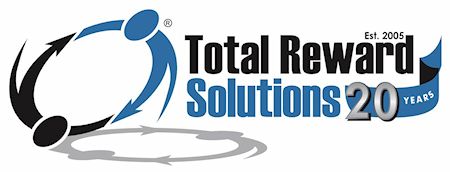June 9, 2017

Compensation satisfaction is extremely important to U.S. workers, but actual satisfaction in that category falls far short of the desire. This is according to a recent survey from the Society for Human Resource Management (SHRM). The 35 percentage-point gap regarding compensation was the largest noted in the Employee Job Satisfaction and Engagement Survey. According to SHRM, the survey “examined 44 aspects of job satisfaction and 38 factors directly related to employee engagement.” Survey topics included compensation and benefits, career development, work environment, workplace relationships, and other HR issues.
While compensation appears to be a sore point for many employees, 89% of respondents said they were somewhat or very satisfied with their jobs overall. This is up slightly in this survey, which “polled 600 randomly selected U.S. employees in December 2016.”
Respect Matters, But Trust is Lacking
For the third consecutive year, the highest percentage of respondents (65%) cited respectful treatment of all employees as very important to job satisfaction. Across employee demographic lines, however, wide variances appeared. For example, 15% more female than male employees cited respect for all employees as very important. Millennials reported more satisfaction with overall respect than Generation X employees (45% vs 31%). And executives were more likely to be very satisfied with the respect shown to all employees than lower level individual contributors by a 21% margin.
Trust between employees and senior management also showed a broad discrepancy. More than 3 in 5 respondents said trust was very important to job satisfaction while only 1 in 3 reported being very satisfied in this area.
The Compensation Satisfaction Gap
SHRM reports that one reason for dissatisfaction with compensation could be a recent nine percentage-point drop in the number of workers receiving bonuses. The organization noted that even though overall job satisfaction levels are high, 40% of employees were open to seeking external opportunities. The leading factor in an employee’s decision to stay or go elsewhere? Compensation/pay.
Not surprisingly, employee perspectives on benefits also showed a wide gap between importance as a factor to job satisfaction (56%) and actual satisfaction with current level of benefits (31%).
The Bottom Line:
While SHRM’s reports on the survey focused largely on the positive takeaway that nearly 90% of surveyed employees were at least somewhat satisfied with their jobs, there is clear room for improvement when it comes to compensation and benefits. In a recent post, I emphasized the importance of compensation communication to employee loyalty, and this survey bears that out: if employees understand the reality of their compensation and benefits relative to outside opportunities, they are probably more likely to be satisfied and stay put. So, it’s possible for overall job satisfaction to climb still higher, even as costs of employee turnover, recruiting, and onboarding, drop.
Where does your organization stand when it comes to compensation satisfaction and its impact? If you’re not sure, your company could be vulnerable to excessive costs related to turnover, talent acquisition and onboarding. To learn more about how to manage these risks more effectively, contact us today at 317.589.8529.
Cassandra Faurote
About Total Reward Solutions:
Total Reward Solutions is your trusted partner for compensation and benefit services. Led by respected and professionally certified Human Resources expert Cassandra Faurote, Total Reward Solutions offers a broad range of compensation, benefits, performance management, and reward/recognition consulting services to help your organization attract top talent, motivate employees and retain top performers. We can partner with you on a project basis, on retainer, or as your total outsourced solutions provider for compensation services.
Call us today at 317.589.8529 to discuss how we can help your organization develop and implement competitive and effective compensation and total reward programs.
